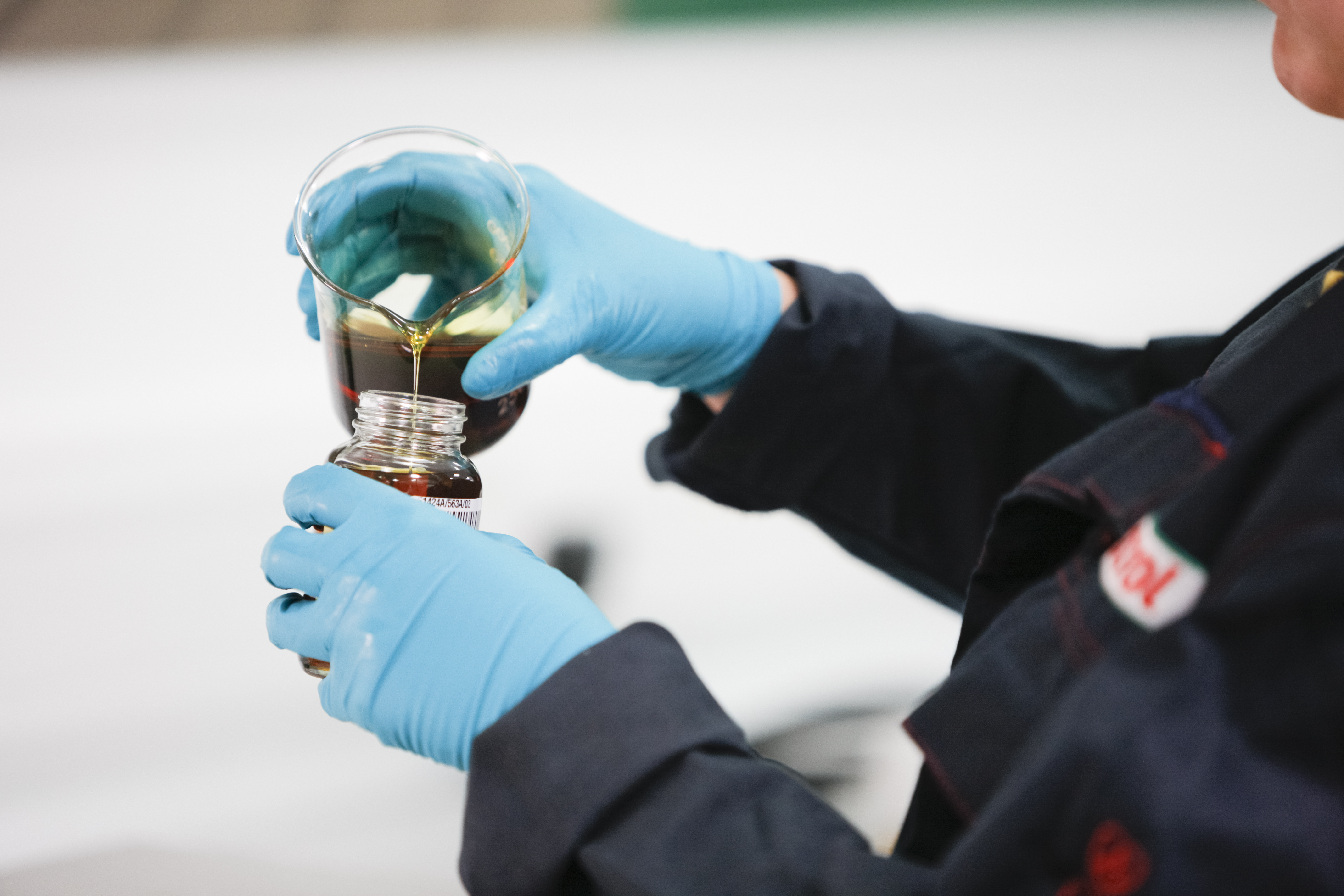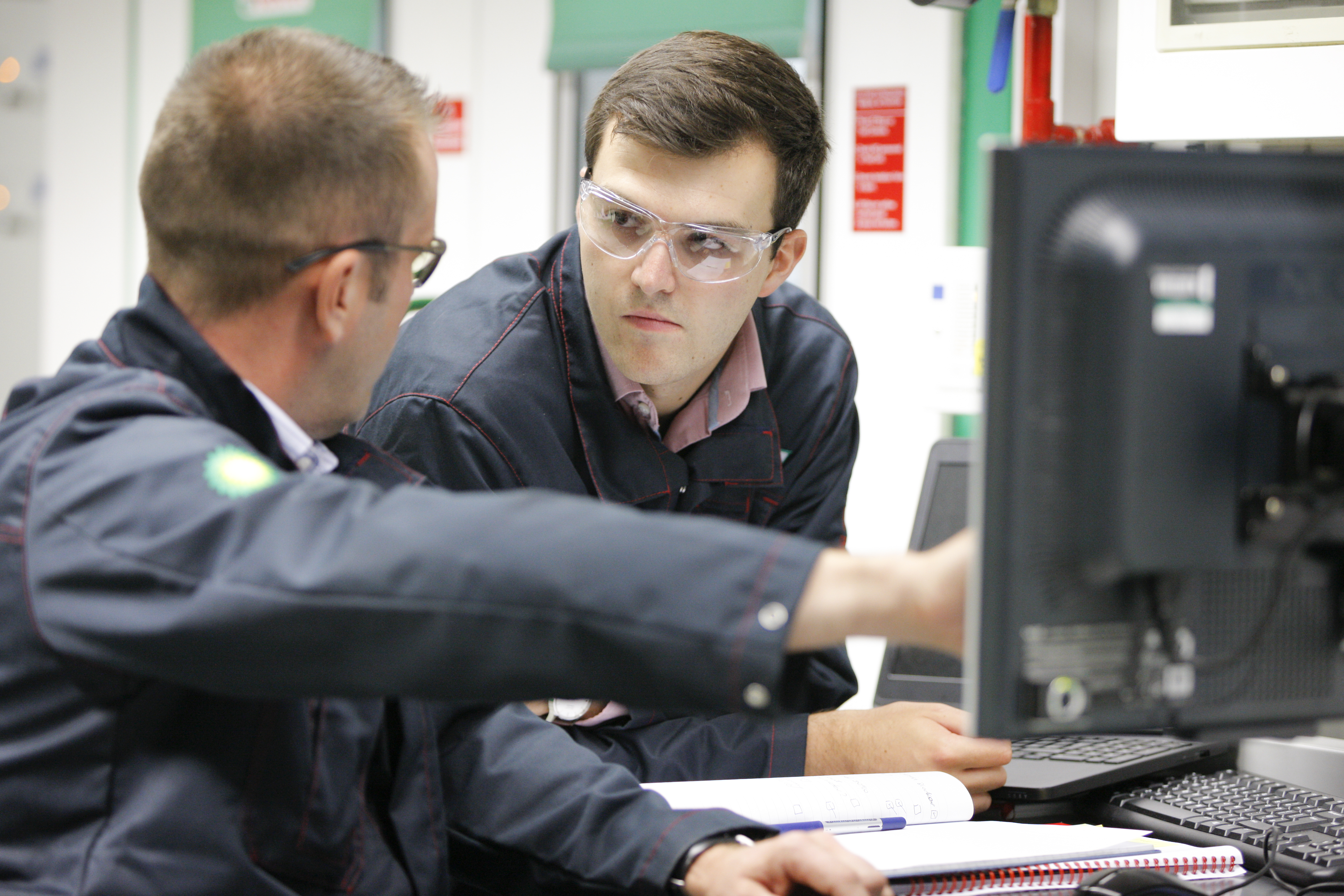
Die Geheimnisse des Rennens: Hinter den Kulissen von Castrol und Renault Sport
Castrol schickte einen angehenden Ingenieur zu einem Grand Prix mit Renault Sport Racing. Dies ist seine Geschichte.
It could be called the ultimate week of internships. When Marcello D'Aprile, a 21-year-old mechanical engineer from the London Imperial College, was invited to spend a day with the Renault Sport Formula One team and visit Castrol's technology center in the UK, it sounded promising. An opportunity to acquire some insider knowledge and at the very least impress the tutors at the beginning of the new academic year. But that was not all, because the last three days of the week he was able to spend at the British Grand Prix with exactly this Renault team. For a declared car and Formula 1 fan could not be better.
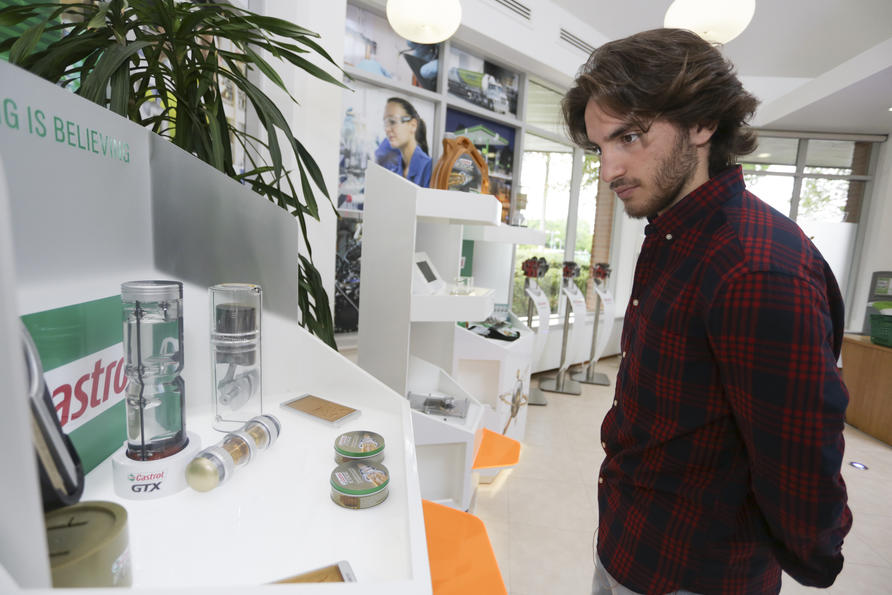
Hardly anyone is so perfect in this sport as to explain from the perspective of a team why a technical partner like Castrol is so important for success. "Castrol is an incredible partner that allows things to happen," explains Bell. "There are two essential things in Formula One that need to be dealt with correctly: reliability and performance. Castrol is a crucial partner that enables us to create both, so we can win races and score points. "
Das ist also die technische Begründung des Teams. Um besser verstehen zu können, warum Castrol so viel in die Königsklasse des Motorsports investiert, musste Marcello jedoch Castrols Technologie-Zentrum in Pangborne einen Besuch abstatten. Will Pickford, F1 Programme Manager für Castrol half, Bob Bells Standpunkt näher auszuführen. „Es ist im Grunde ganz einfach. Wir können unsere Schmiermittel durch die Beteiligung an der Formel 1 sehr viel schneller entwickeln. Die Anforderungen des Sports sind extrem hoch und das Tempo ist gnadenlos. Während der Saison gibt es im Durchschnitt alle zwei Wochen ein Rennen und dazwischen einige offizielle Tests. Das Feedback ist unmittelbar, zudem betreiben wir in unserer eigenen Testeinrichtung und in der Fabrik des Renault Sport Formula One Teams kontinuierlich Produktforschung und -entwicklung.
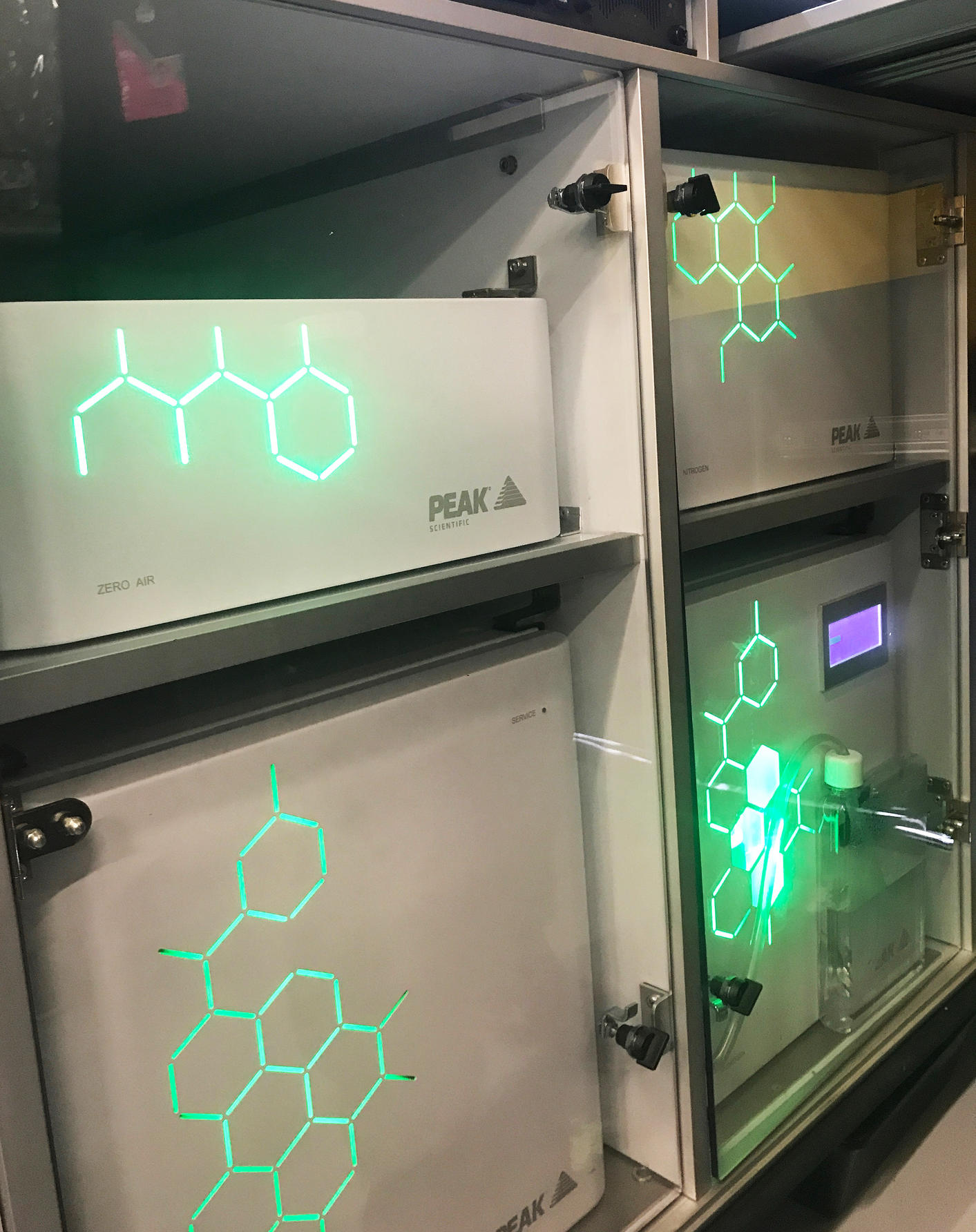
Nur durch diese Art von Zusammenarbeit mit einem großen Motorhersteller können wir ein Entwicklungstempo aufrechterhalten, das wir brauchen, um kontinuierlich unsere Schmiermittel für den Straßenverkehr verbessern zu können. Und letztendlich ist das natürlich unser Ziel.“ Seb Hirsz, ein leitender Formel-1-Technologe in Pangbourne, spielt eine entscheidende Rolle dabei, das Renault Sport Racing durch die konstante Weiterentwicklung von Castrol-Produkten für den Rennsport zu unterstützen. Von Hirsz erhielt Marcello Informationen, die Pickfords Aussagen verdeutlichen.
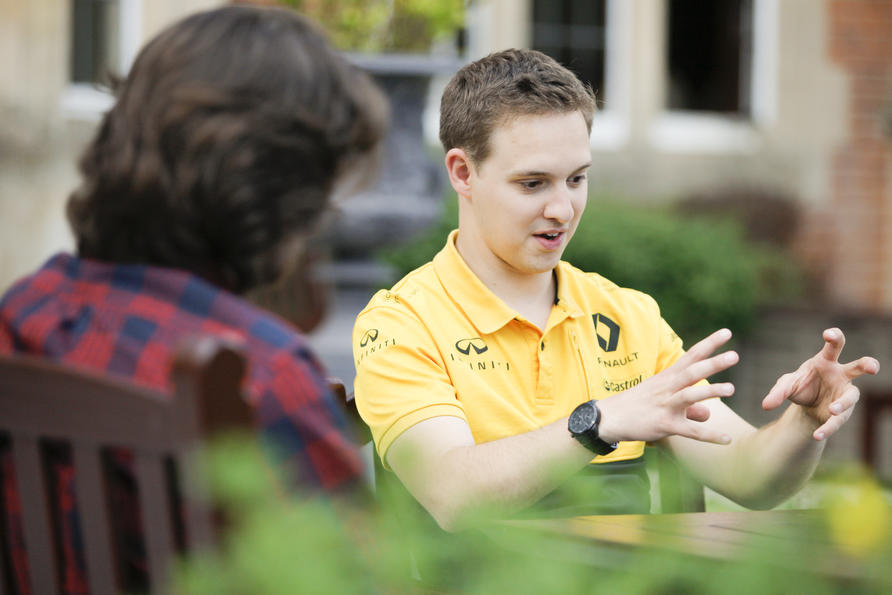
The majority of Hirsz's work takes place in Pangbourne, where he also relies on the skills and the use of colleagues such as development technician Jenna Hill. Hill is responsible for preparing the first samples of each new formulation developed by Seb following the feedback from Renault Sport Racing and Castrol's team at the circuit. This is the development moment that Will Pickford meant, and why Castrol's involvement in Formula One is so important for his research.
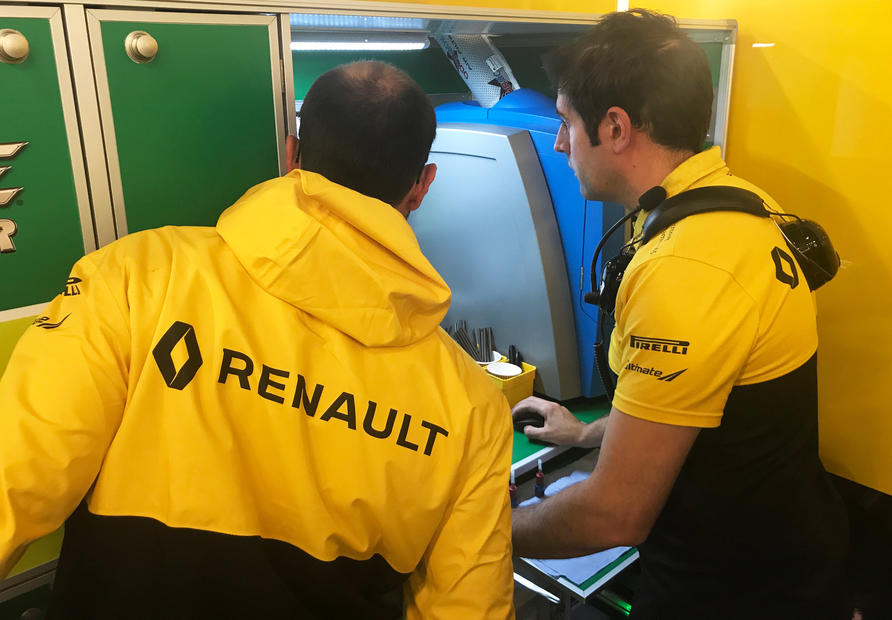
When Nico Hülkenberg finished the best season of the season for the Renault Sport Formula One Team in Silverstone (with 6th place and eight important points for the World Cup), the Milanese engineer had already spent three full days in Renault's boxing workshop Was in a thoughtful mood. "While I am studying the general subject," experiencing extreme engineering "directly, one really opens my eyes. I really had no idea what a technical partnership like this would involve, but after the discussions with the team and with Castrol, I have a lot more clear. Without this level of joint development work, rapid technical progress would not be possible. "
And behind Castrol's quest for perfection, there is a need to maintain these equally high standards for every product the company produces. Whether it is the work that Castrol is doing with the Renault Sport Formula One team or the Castrol EDGE product you or the workshop of your trust use for your car, this kind of partnership is as relevant today as it was then, When Charles Wakefield founded the company.
Featured

Trending this week
- Car Review
BMW iX3





